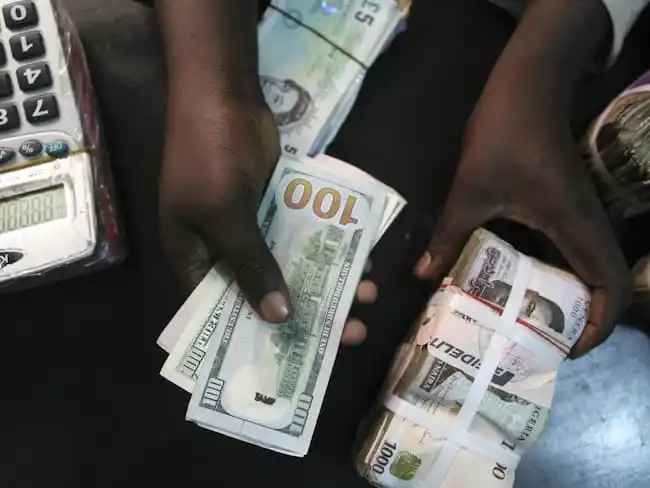Bureau De Change (BDC) operators have revealed that despite the naira’s recent gains in the foreign exchange market, confidence in the local currency remains weak. This was highlighted by the President of the Association of Bureau De Change Operators of Nigeria (ABCON), Aminu Gwadebe, who attributed the naira’s recent appreciation to the intervention of the Central Bank of Nigeria (CBN) through the Electronic Foreign Exchange Matching System (EFEMS) window.
According to licensed currency traders, while the appreciation of the naira is a positive development, the currency is still burdened by devaluation in the official market and depreciation in the open market. This intervention has significantly increased forex supply, while weaker market demand has also contributed to the gains.
ABCON previously noted that the naira is becoming one of the most unpredictable currencies globally, affected by multiple economic pressures, including trade wars, exchange rate fluctuations, and speculative attacks.
Gwadebe outlined several challenges impacting the forex market, such as global economic uncertainty, regulatory changes, technological advancements, and market volatility. He explained that economic slowdowns in major economies like the U.S., Europe, and China have led to decreased trade volumes and heightened market instability. Additionally, the recapitalization policy for BDCs has increased compliance costs for forex brokers and reduced market liquidity.
Overall, these challenges have resulted in greater market volatility, reduced liquidity, higher trading costs, and intensified regulatory scrutiny.
Ensuring Sustained Stability for the Naira
To maintain the naira’s positive performance, Gwadebe urged the CBN to adopt a proactive communication strategy, emphasizing positive developments while minimizing the impact of negative news.
“The naira appreciated significantly at the open market, moving from a low of N1,580 per dollar to N1,545 per dollar during the week. The CBN’s intervention at the EFEMS window has considerably boosted forex supply, along with reduced market demand. However, despite these gains, the local currency remains weighed down by devaluation in the official market and depreciation in the open market.”
To ensure long-term stability, Gwadebe suggested that the CBN’s market interventions should extend beyond the wholesale banking sector to include BDCs, thereby increasing forex supply at the retail level.
“Despite recent gains, the naira continues to suffer from a lack of confidence, and market players remain hesitant to offload their forex holdings during naira recoveries,” he added.
Key Market Insights
BDC operators have attributed the naira’s volatility to high forex demand, driven by government-related contractual payments and disbursements. Gwadebe acknowledged that the forex market is experiencing significant speculative attacks and emphasized the need for regulators to remain consistent in implementing reforms and policies. He stressed that many of these market fluctuations are artificial, discretionary, and temporary, predicting that they will eventually stabilize.
Additionally, he urged the CBN to revisit its earlier prudential guidelines, particularly those requiring a portion of International Money Transfer Operators’ (IMTOs) forex proceeds received by banks and fintech companies to be allocated to the BDC market.
In response to ongoing forex market volatility, the CBN has introduced multiple measures aimed at stabilizing the naira. However, speculative activities continue to exert pressure on the local currency, making confidence recovery a slow process.













